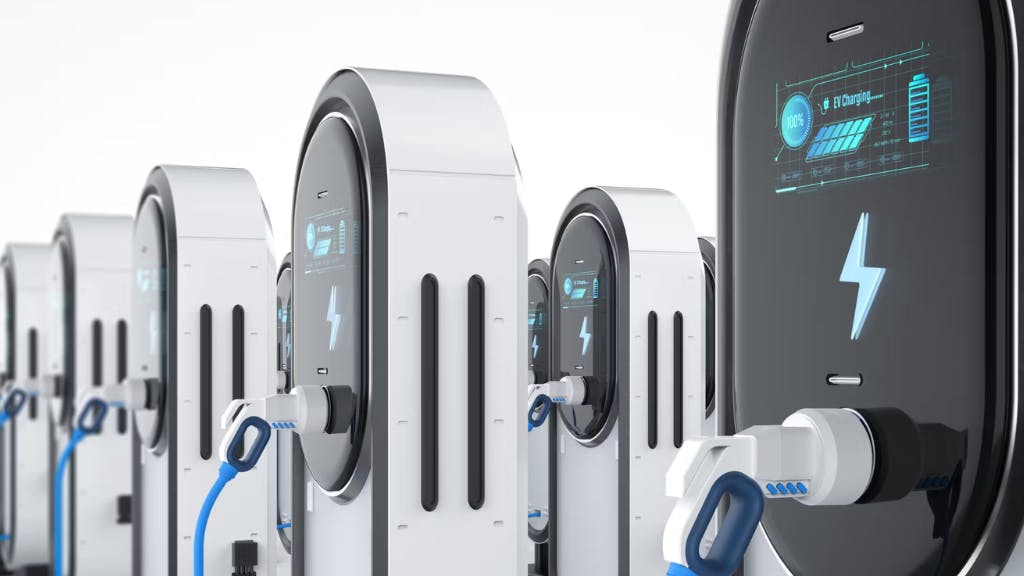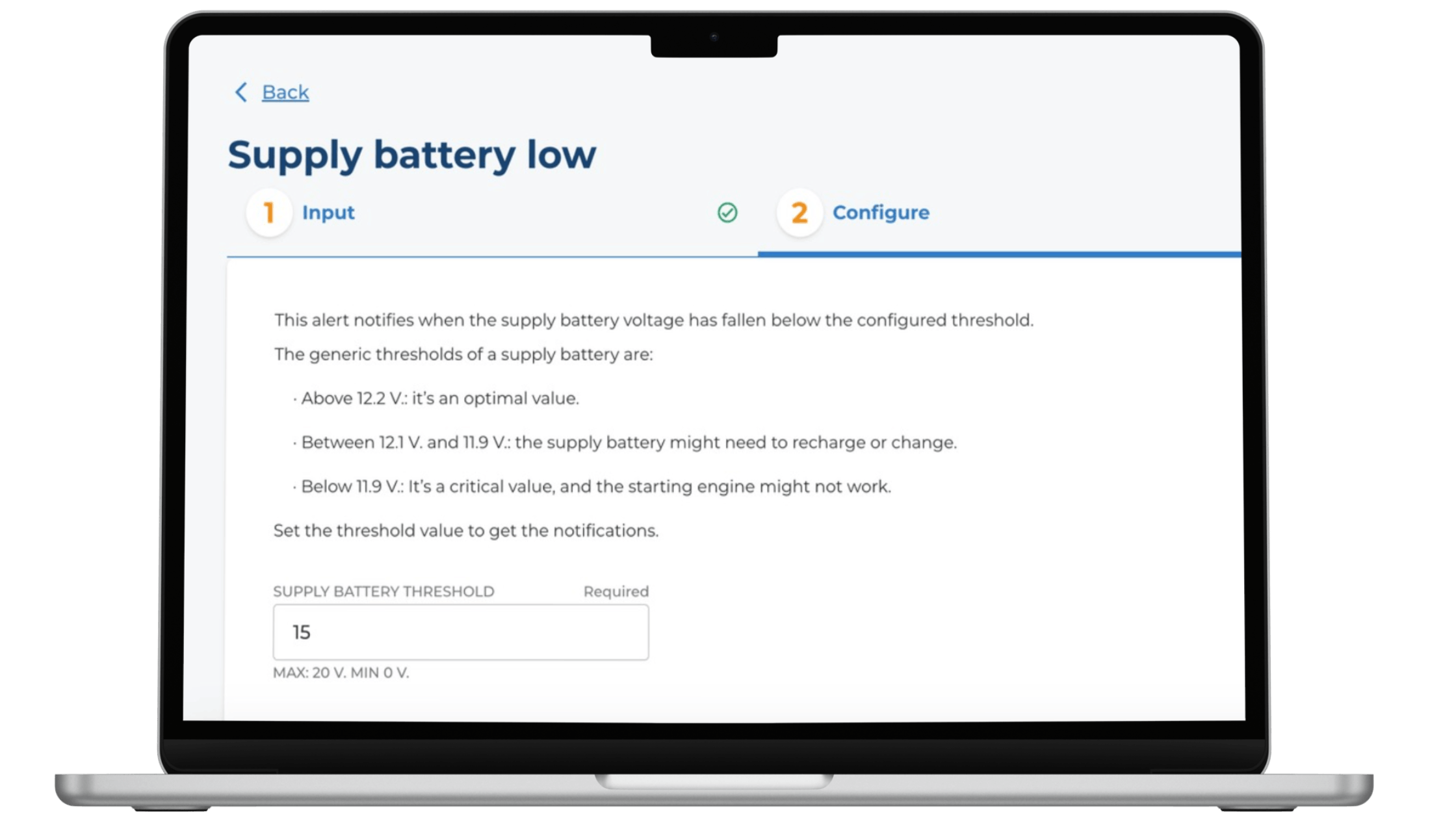Battery Boost: Advancing Electric Fleet Efficiency
Optimize operations, extend lifespan and drive cost savings

In recent years, the automotive industry has experienced a significant paradigm shift towards electric vehicles (EVs), driven by a combination of environmental concerns, regulatory mandates, and technological advancements.
This shift presents both challenges and opportunities for fleet management, especially in corporate mobility scenarios where efficiency, cost-effectiveness, and sustainability are paramount. The emergence of connected vehicle solutions offers a transformative way to address these challenges and leverage the full potential of electric fleets.
With the advent of connectivity, vehicles are no longer isolated entities but rather nodes within a vast network of data exchange. This connectivity enables real-time monitoring, analysis, and optimization of various aspects of fleet operations, particularly in the context of electric vehicles powered by batteries.
By harnessing the power of data and analytics, fleet managers and business owners can make informed decisions, mitigate risks, and unlock new avenues for efficiency and sustainability.
How could connectivity help manage fleets with electric vehicles that use batteries?
Connectivity serves as a cornerstone for effective fleet management in the realm of electric vehicles (EVs). Battery monitoring is crucial, especially as businesses increasingly adopt electric fleets due to environmental concerns and cost-effectiveness.
Effective battery management helps in maximizing the operational range of EVs, reducing downtime, and maintaining battery health over time. Here’s how battery monitoring can be utilized in the context of fleet management and mobility:
Range Optimization:
- Real-time Battery Status: Fleet managers can monitor the real-time battery charge status of each vehicle, helping to plan the routes that the vehicles can complete before needing a recharge.
- Dynamic Range Calculation: Systems can calculate the dynamic range of vehicles based on current battery levels, driving patterns, and terrain, adjusting routes or schedules as necessary to ensure that vehicles can reach charging stations or complete their routes.
Maintenance and Battery Health:
- Condition Monitoring: Regular monitoring of battery health metrics such as voltage, temperature, and charge cycles can predict when a battery might fail and when it needs maintenance or replacement.
- Warranty Compliance: By keeping detailed logs of battery usage and maintenance, companies can ensure compliance with warranty conditions, potentially saving on costly battery replacements.
Charging Management:
- Smart Charging Schedules: Battery monitoring systems can help fleet managers develop smart charging schedules that reduce electricity costs by charging during off-peak hours.
- Charging Station POIs: Integration with POI data can help drivers find available and suitable charging stations, reducing downtime and planning effective recharging stops.
Cost Management:
- Optimal Battery Usage: Detailed battery usage data can help optimize battery life and performance, reducing the frequency and cost of battery replacements.
- Energy Consumption Analytics: Monitoring can provide insights into energy consumption patterns, helping to identify opportunities for further cost savings.
Route Planning:
- Integration with Route Management: Battery monitoring can be integrated with route management systems to plan routes based on the available battery life, ensuring vehicles are always within range of a charging station.
- Avoidance of Range Anxiety: Real-time battery monitoring helps eliminate range anxiety for drivers by ensuring they have sufficient charge to complete their tasks.
Regulatory Compliance:
- Emission Standards Compliance: Effective battery management helps in complying with local and international regulations concerning emissions and energy usage, which is crucial for maintaining operational licenses in certain regions.
Driver Support and Training:
- Driver Alerts: Drivers can receive alerts about battery levels and recommended actions, such as reducing power usage or heading to a nearby charging station.
- Training on Energy Efficiency: Data from battery monitoring can be used to train drivers on driving habits that optimize battery use and extend vehicle range.
Sustainability Goals:
- Reducing Carbon Footprint: Efficient battery management is key in reducing the overall energy consumption and carbon footprint of the fleet, supporting broader environmental and sustainability goals. To implement battery monitoring effectively, fleet managers should consider investing in advanced battery management systems (BMS) that can provide detailed diagnostics and real-time data on battery health and usage. Integrating these systems with existing fleet management software will enable comprehensive monitoring and management of the electric vehicle fleet, enhancing operational efficiency and sustainability.
Enhancing battery performance through Astara Connect
We understand the critical role that battery health plays in the success of electric fleets. That's why our platform is designed to address the unique challenges associated with battery management, from range optimization and maintenance to charging management and cost control.

💡 How can we boost EVs Battery Health?
- Real-time Monitoring: Continuous monitoring of vehicle and battery health metrics, with customizable alerts for critical parameters.
- Predictive Maintenance: ML-driven predictive analytics for anticipating maintenance needs and scheduling proactive interventions.
- Smart Charging: Optimization of charging schedules based on factors like energy pricing, grid demand, and battery status.
- Route Optimization: ML-powered route planning and dynamic rerouting for optimizing delivery routes in real-time.
- Compliance Reporting: Automated generation of compliance reports tailored to local regulations and standards.
- Driver Feedback: Feedback on driving behavior, along with personalized coaching for improving efficiency and safety.
- Data Analytics: Advanced analytics tools for cost optimization, performance analysis, and trend forecasting.
Charting the Course Forward: Embracing Electric Mobility
The integration of connectivity with electric fleet management represents a paradigm shift in corporate mobility, offering unprecedented levels of efficiency, sustainability, and cost-effectiveness.
By harnessing the power of data-driven insights, organizations can navigate the complexities of electric vehicle adoption with confidence, positioning themselves for long-term success in a rapidly evolving landscape.
Astara Connect not only optimize fleet operations but also contribute to broader sustainability goals, driving positive impact across industries and communities. As the world transitions towards a greener future, embracing connected vehicle becomes imperative for organizations looking to stay ahead of the curve and lead the charge towards sustainable mobility.
